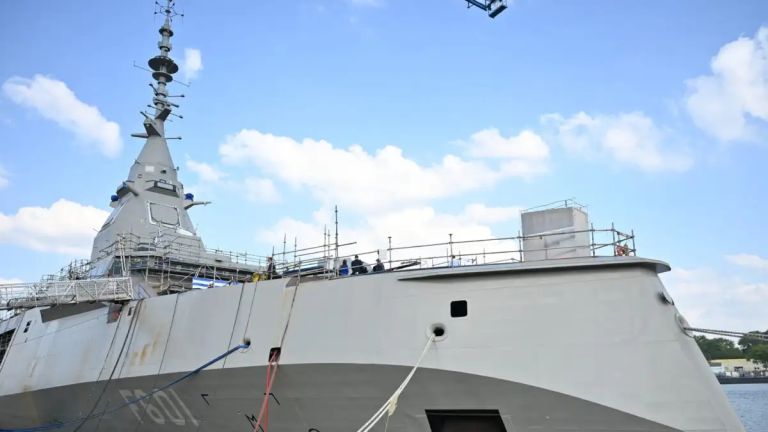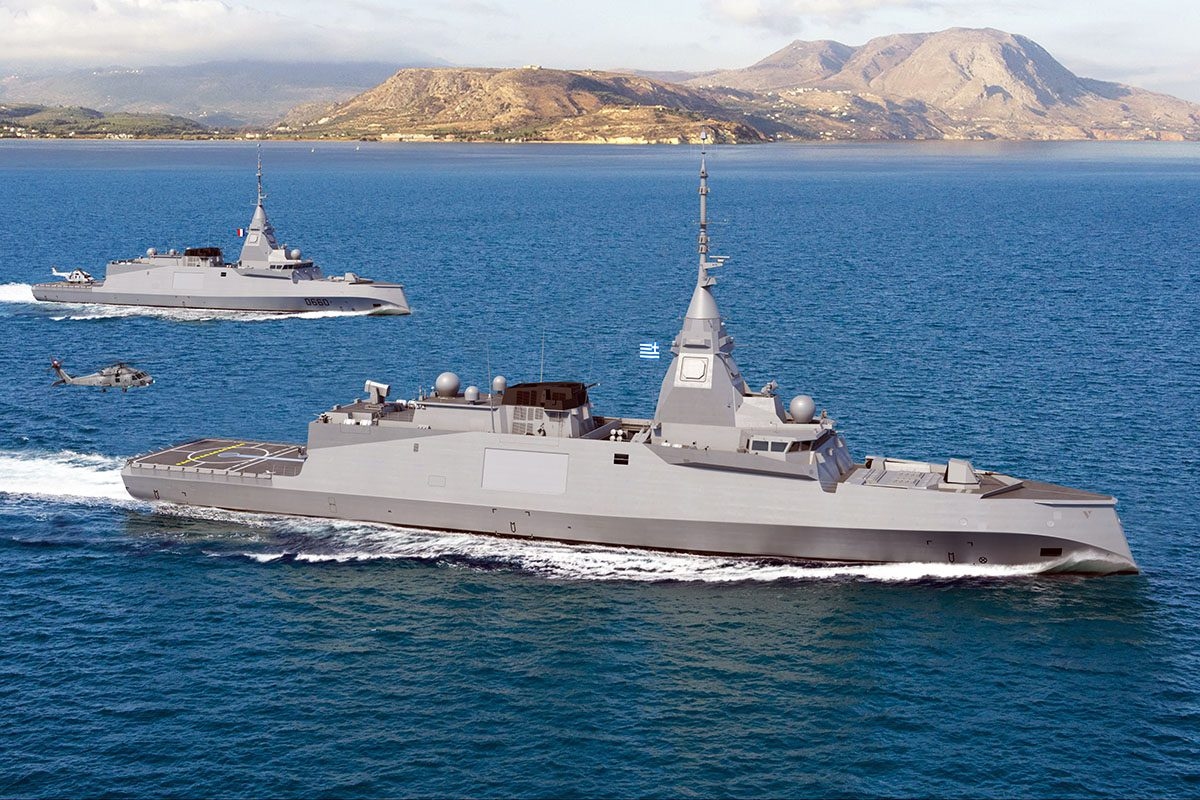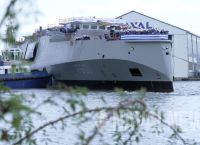The Fourth Belharra Frigate “Themistocles” and the High-Stakes Gamble of Greece’s Defense Industry

Πηγή Φωτογραφίας: eurokinissi//The Fourth Belharra Frigate “Themistocles” and the High-Stakes Gamble of Greece’s Defense Industry
With the decision of Greece’s Government Council for Foreign Affairs and Defense (KYSEA) to exercise its option for a fourth Belharra frigate, a new chapter in the country’s defense modernization officially begins — one that comes with a staggering €30 billion price tag and carries the hope of reviving Greece’s struggling defense industry.
The new ship, to be named “Themistocles,” will be an upgraded Belharra Standard 2++, with enhanced operational capabilities. As Defense Minister Nikos Dendias noted:
“Themistocles is not just a fourth frigate. It’s a Belharra Standard 2++, with +10 enhanced capabilities.”
According to the official cost breakdown:
- €922 million for procurement of the vessel
- €60 million for ongoing support of all four Belharras
- Total cost: €982 million, to be paid in installments through 2030

Payment schedule:
- 2025: ~€409 million
- 2026: ~€141 million
- 2027: ~€247 million
- 2028: ~€126 million
- 2029: ~€31 million
- 2030: ~€28 million
More than a Frigate – A Strategic Turning Point
The fourth frigate is not just another procurement deal. It marks a strategic turning point, representing perhaps the most immediate and tangible part of a broader defense plan. What truly matters now is whether this will trigger real development in the domestic defense industry — an industry long-stalled, underfunded, and under-utilized.
The hope within the Armed Forces and the industrial sector is that this momentum will finally unlock further procurements, while also prompting serious planning and governmental engagement in building a national defense production capability.
Europe’s New Defense Agenda: A Missed Opportunity?
Europe’s push for strategic autonomy in defense, accelerated by the Ukraine war and global instability, offers unprecedented funding and opportunities.
But Greece, many argue, is lagging behind. The EU’s SAFE program, worth €150 billion, aims to strengthen defense production across the bloc. Greece, however, secured just €787.7 million in funding for 2026–2028 — second to lastamong 19 participating nations.
For comparison:
- Cyprus: €1.18 billion
- Hungary: €16 billion
- Poland: Over €40 billion
Greece submitted its application late, and only after Prime Minister Mitsotakis personally intervened, requesting €1.2 billion in EU funding.
Tax Breaks: A Step in the Right Direction
One of the most encouraging developments came at the Thessaloniki International Fair (TIF), where the Greek Prime Minister announced a generous package of tax and investment incentives for companies investing in defense.
These include:
- 100% super-deductions on expenses related to the production of weapons, ammunition, military vehicles, electronics, and aircraft components
- Zero corporate tax for companies investing in defense between 2026–2028
This package is seen as a clear call to international defense firms to consider Greece as a production base — not just a buyer.
Delays and Structural Weaknesses
Despite the grand announcements, the actual participation of Greek companies in the €30 billion program — officially set at 25% — remains unclear, as it is neither legislated nor operationalized.
Industry insiders stress that this could be Greece’s last chance to develop a competitive defense sector.
Key issues still remain unresolved:
- Slow political decision-making
- Lack of long-term planning
- Absence of a dedicated state body (e.g., General Secretariat or Deputy Ministry of Defense Industry) to oversee, coordinate, and set industrial policy
Lessons from Abroad: What Greece Can Learn
Other countries show that success depends more on strategic planning than budget size:
- Poland: Leveraged its defense needs to secure deals with U.S. and South Korean firms — with technology transfer and co-production as non-negotiables
- Sweden: Invested steadily in R&D, enabling Saab to develop the Gripen fighter jet — competing with major global players
- Israel: Built an integrated ecosystem linking military, academia, and private industry — exporting dual-use tech and becoming a top global defense exporter
- France & Germany: Created global defense giants through joint ventures like Airbus and MBDA
- Turkey: With sustained political will, surpassed $7.1 billion in defense exports in 2024, becoming a regional powerhouse
These examples prove that what matters most is not size, but vision, strategy, and institutional support.
Greece’s Defense Gamble: From Vision to Execution
As Europe re-arms, Greece cannot afford to be a passive observer. With geopolitical tensions escalating and defense autonomy becoming a continental priority, the country must:
- Establish a national defense industrial strategy
- Legislate the 25% domestic industry participation
- Forge partnerships with global defense players
- Create a dedicated state body to oversee the sector
- Invest in R&D, innovation, and technology transfer
Without structured partnerships and access to production lines, the Greek defense sector will remain a subcontractor — not a creator.
The Window of Opportunity Is Closing
The acquisition of the 4th Belharra frigate marks a crucial milestone for both the Hellenic Navy and Greece’s defense aspirations. But the real test is not at sea — it’s onshore, in whether Greece can finally build a modern, competitive, and export-oriented defense industry.
This is not just about weapons. It’s about jobs, technology, national resilience, and strategic independence.
The opportunity is real. But so is the risk of losing it — once again.
Source: pagenews.gr
Διαβάστε όλες τις τελευταίες Ειδήσεις από την Ελλάδα και τον Κόσμο






Το σχόλιο σας